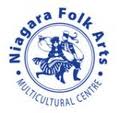Dibe, Noelia - Quality Coordinator
From What can you do with a degree in psychology?
Revision as of 11:33, 27 March 2015
Contents |
Job title (Noelia Dibe)
Settlement Counsellor or Settlement Worker
General Overview
The Settlement Counsellors can have various titles, which will depend on whether the employer is a non-for-profit organization, a for-profit agency or a government employer, like Immigration, Employment Insurance and Revenue Officers in Alberta. The following information will be based on Settlement Counsellor Postings, which require the applicant to support a diverse range of newcomers, through all of their needs when settling to Canada. The newcomer centre is usually recognized as a fast-paced environment. The range of involvement can vary from providing assistance in finding affordable housing, making recommendations and establishing appointments to community programs for financial support to fulfill basic needs like food, shelter and clothing. Settlement Counsellors are also responsible for completing all the necessary immigration regulatory documents, like assistance with Permanent Residency and Canadian Citizenship applications. Approximately 10-15% of the work day is dedicated to providing solution-oriented and strength-based counselling to the newcomer population[1].
Job Duties and Responsibilities
- Provide direct settlement services to the clients of the newcomer centre.
- These services include: maintain client database and intake procedures, orientation to newcomer programs and volunteer opportunities, development of individual settlement plans, orientation to the community, and referral to community agencies, language interpretation (e.g., French, Spanish, Arabic and Mandarin with fluency in English).
- Advocate on behalf of clients to ensure their equitable access to programs and services.
- Provide advice and support to clients encountering difficulties in adjusting to life in Canada with solution-focused and strength-based counselling.
- Provide information and advice in Immigration-related matters and assist clients to complete a variety of Citizenship and Immigration Canada (CIC) forms and applications.
- Maintain client case-notes and service records.
- Collaborate in the preparation of information documents used to serve clients.
- Create and utilize client feedback forms to capture workshop opportunities and efficiencies, and compile statistical reports for government sponsors, as required.
- Conduct networking and liaison activities with a variety of stakeholder agencies.
- Participate in workshops and activities that promote understanding of newcomers; participate in community consultations and make presentations to groups as needed.
- Participate in the development of new programs or service areas.
- Assist with events and activities that contribute to a positive image of the centre[1].
Typical Workday
The usual work schedule is during business hours, 8:30 am - 4:30 pm, Monday through Friday. Overtime is not an expectation, and there is no unusual shift work unless the candidate wants to volunteer their own time during weekend events. Newcomer agencies can be non-for-profit or for-profit agencies, and are centrally located within downtown areas of cities, making the sites easily accessible. This position is typically based out of an office setting and or heritage buildings, and can vary in size depending on whether the centre’s services also include ESL/LINC language classes. The work place environment can have high and low peak periods at any time of the year, since it is contingent on a variety of international circumstances affecting the migration patterns of the Canadian newcomer population. For example, the St. Catharines Niagara Folk Arts Multicultural Centre newcomer site is usually a very fast-paced environment, and therefore appointments are typically required to be attended by one of the five Settlement Counsellors. The typical work day involves assisting clients in their rights; support causes that will bring about positive change for the newcomer population and facilitate links within other community outreach programs. The Settlement Counsellor role also involves being a case-manager, by connecting clients to appropriate amenities and coordinating the use of the services. Another function can involve being a mentor, coaching and facilitating newcomers through a variety of workshop presentations. Due to the needs of the diverse newcomer population, the Settlement Counsellor can experience unpredictable and varying functions throughout a workday. Coworkers will also be representative of a diverse population, in order to accommodate the requests of most newcomers. Special tools and technologies required for use are computers (customized internet databases, MS office), fax machines, photocopiers, scanners and printers, within a typical workday[1].
Educational requirements and other qualifications
Depending on the newcomer agency, a Settlement Counsellor/Worker posting can have varying degrees of education and qualifications[1]. For example, post-secondary education, like a Bachelor’s degree in social work, education or psychology and, one year of work experience providing counselling services, or, Post-secondary education in the social sciences, humanities, or adult education, and, two years’ work experience providing counselling services, or an equivalent combination of directly related training and experience[1][2]. Training in life skills counselling is not mandatory, however is seen as an asset. Some newcomer centres will provide educational growth opportunities through other community resources. For example, the Canadian Mental Health Agency offers Mental Health Safety workshops. The agency prefers the applicant keep a current license if they are a registered Social Service Worker, though the Settlement Counsellor role does not require any type of licensing[1]. Knowledge of the settlement sector and services available to newcomers, cross-cultural competence and sensitivity, fluency in English required and or fluency in a second international language is an asset[1]. Prior work or volunteer experience in social services, familiarity with the principles of case management and client confidentiality, strong communication, interpersonal, and facilitation skills, excellent computer skills and familiarity with databases[1].
Related skills, interests, and abilities
The essential skills would include eagerness, open-mindedness, maintenance of a professional demeanour for continuous learning, possessing the ability to conduct independent research and resourcefulness in finding information. Organizing and planning tasks through critical thinking and problem solving is considered an asset. This includes displaying self-motivated qualities with strong organizational and effective listening skills whether providing information or completing government applications and intake forms with clients. The environment can be a fast-paced that requires a high level of trouble-shooting through creative problem solving skills. The Settlement Counsellor must be patient, non-judgemental, accommodating and flexible when working with others, and possess the ability to communicate effectively and detailed focused when completing documents for a diverse newcomer population[1][2].
Relevance of Psychology undergraduate degree
The Brock University Bachelor of Arts, majoring in Psychology[3], in collaboration with Sheridan College, Social Service Worker (SSW) diploma[4], offered all of the necessary knowledge and skills required for a Settlement Counsellor career[1]. The elements from undergraduate training in Psychology are relevant to this job in the following ways: the collection and interpretation of statistics will assist in creating survey spreadsheets for the centre; the possession of analytical skills, and attention to detail; an understanding of research collection methods and applications; an empathetic view of mental health challenges, such as knowing the emotional, behavioural and physical effects of stress, drugs and alcohol on the body; displaying patience, non-judgemental demeanour, and knowledgeable about the needs of both minority and marginalized groups, including those with cultural differences, special needs, LGBTQQ and counselling approaches for individual differences is required in the advocacy, case management and counselling function of the Settlement Counsellor role; an awareness of the impacts of global and political issues have on immigration; experience with working in groups to produce projects and presentations, as well as facilitating presentations and workshops are skills required of the facilitator function; the ability to multitask and utilize all MS software, like PowerPoint to educate others on the aforementioned topics related to the field of social psychology. All of these transferable skills and knowledge lend well with the multifaceted advocacy, case manager, facilitator and counsellor functions of a Settlement Counsellor[1][3].
Salary Potential
The potential salary range is $20.15 to $25.50 per hour, and the average contract term is one year[1][5]. The starting salary may vary from region to region, and from province to province, and may be due to average cost of living. Another reason for the variance may be related to experience and skill set, which can often be negotiated during the hiring process. For example, the salary may depend on the newcomer centre’s budget. The salary would be on the higher end if the incumbent speaks a second language, possess previous work related and volunteer experience with diverse groups. Due to cost of living, the salary may also exceed the $25.50 per hour if the Settlement Counsellor role is situated in bigger metropolitan cities like Toronto and Calgary. Alberta has Immigration, Employment Insurance and Revenue Officers who have similar qualifications and are paid $29.46 per hour on average[6][7].
== Job outlook == The Canadian government (Federal[8], and Provincial) funds many of the approved (usually non-for-profit) immigration assistance agencies, like multicultural centres across Canada, which all employ Settlement Counsellors/Workers. These immigration centres are in most Canadian cities, for example, in the Niagara Region, there are centres in Welland, Port Colborne, St. Catharines and Niagara Falls. Larger metropolitan cities like Toronto, will offer many more options and areas where these counsellors are employed. This can usually include counsellors who are fluent in the most prominent top four languages, besides French and English (Spanish, Arabic, Mandarin and East-Indian dialects, like Punjabi), which can change from year to year depending on immigration trends. The type of language asset can also vary depending on the service area[9]. With increasing demands of the specialized skilled workers, the Canadian government is projecting more than 285,000 new immigrants in 2015 in the Permanent Residency programs alone. These figures do not include Federal Skilled Workers programs and refugees of war-torn/terrorized countries like the Middle-East, Africa and South America, from present and past years. Immigration trends are on the rise, which will continue to place demands on the Settlement field. By 2017, 95% of visible minorities will live in metropolitan areas, and 75% will take residence in Toronto, Vancouver and Montreal. The Canadian government is estimating that one-third of the national population, many of whom are foreign born, will be visible minorities by 2031[10][11].




